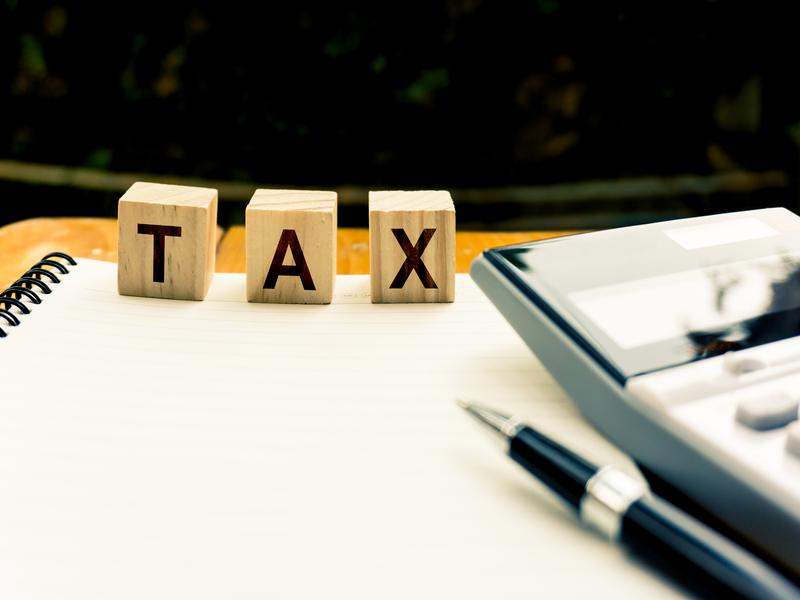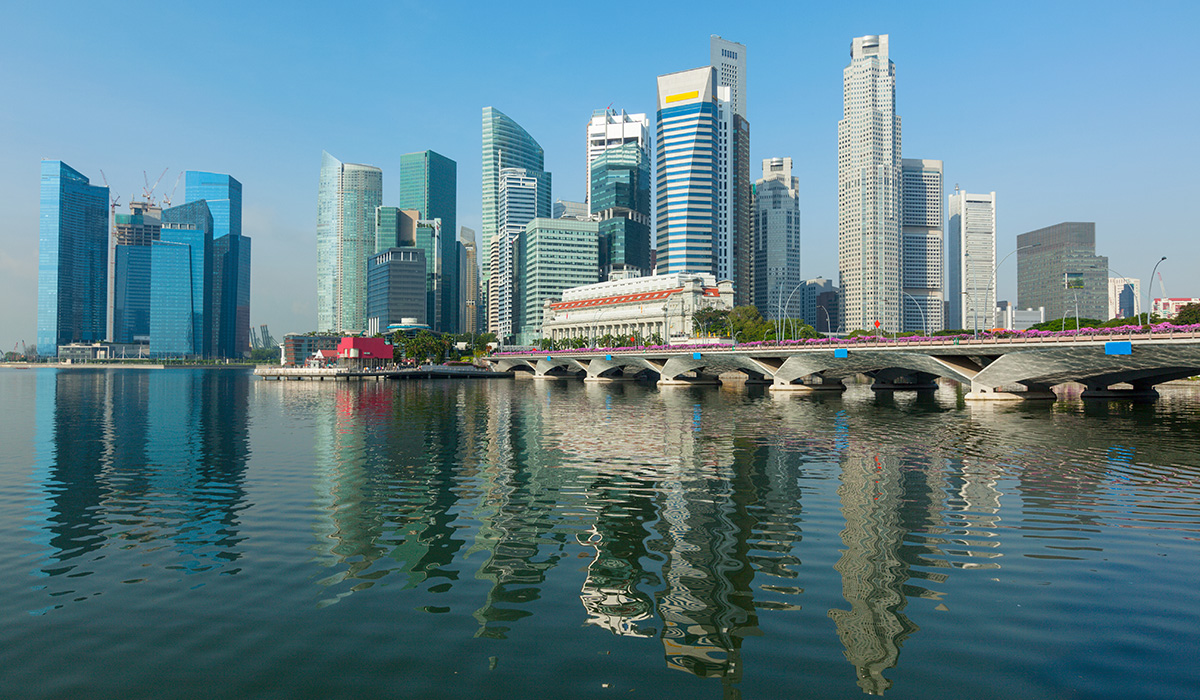

While Singapore’s income tax is calculated based on total earnings within the city-state, it is possible for individuals to achieve a lower tax bill compared to those with lower earnings. Therefore, understanding strategies to reduce income tax in Singapore can be particularly beneficial for foreigners.
Establishing Tax Residency in Singapore for Foreigners
Singapore’s tax system hinges on the concept of tax residency, which is determined primarily by your physical presence or employment in the country. Individuals who reside in Singapore or are physically present or employed there for at least 183 days during the calendar year are considered tax residents. Notably, tax residency is not based on citizenship; both Singapore citizens and permanent residents meet the tax residency criteria. Even a part-day spent in Singapore is treated as a full day for tax residency purposes, except when transiting without immigration clearance. Additionally, continuous employment across two calendar years that amounts to at least 183 days makes a person a tax resident for both years.
Being a tax resident in Singapore offers several benefits, including access to lower tax rates and eligibility for tax reliefs. Furthermore, tax residents can take advantage of Singapore’s Double Taxation Agreements (DTAs) with other countries, which help avoid paying tax on the same income in multiple jurisdictions. To claim these benefits, individuals may need to present a Certificate of Residence as proof of their tax residency in Singapore.
Navigating Progressive Resident Tax Rates
Singapore’s tax system follows a progressive structure, where higher-income earners pay a larger percentage of their earnings in taxes. For tax residents, the personal income tax rates range from 0% to 22%, ensuring that tax contributions are aligned with the individual’s ability to pay. The system works through tax brackets, meaning different portions of income are taxed at increasing rates as income rises.
For instance, after the first S$40,000 of chargeable income, the next S$40,000 is taxed at 7%, and the following S$40,000 is taxed at 11.5%. This progressive approach ensures that higher-income earners shoulder a larger tax burden, while lower-income earners pay less. Additionally, non-resident individuals who obtain Singapore permanent residency may be subject to transitional contribution rates.
Understanding Taxable Income in Singapore
In Singapore, personal income tax encompasses all wages, commissions, and bonuses, excluding CPF payments. All individuals earning income in Singapore must submit their income tax forms and pay the due taxes annually, following the tax rules and residency status. The tax rate increases with the income received, and taxable income includes bonuses, commissions, director’s fees, rental income, and salaries or wages of both employed and self-employed individuals.
Conversely, certain types of income are non-taxable in Singapore. These include capital gains from shares and stocks, CPF Life payouts, inheritance, lottery winnings, and pensions. This distinction helps clarify what earnings are subject to taxation and which are exempt, ensuring taxpayers understand their obligations.
Income Tax Rates in Singapore
To effectively reduce income tax in Singapore as a foreigner, it is essential to understand the current income tax rates. By doing so, taxpayers can accurately estimate the amount they need to set aside for the upcoming year.
| Chargeable income | Income tax calculation |
| 0 – 20,000 | None |
| 20,000.01 – 30,000 | 0 + 2% on the amount above 20,000 |
| 30,000.01 – 40,000 | 200 + 3.5% on the amount above 30,000 |
| 40,000.01 – 80,000 | 550 + 7% on the amount above 40,000 |
| 80,000.01 – 120,000 |
3,350 + 11.5% on the amount above 80,000 |
| 120,000.01 – 160,000 | 7,950 + 15% on the amount above 120,000 |
| 160,000.01 – 200,000 | 13,950 + 18% on the amount above 160,000 |
| 200,000.01 – 240,000 | 21,150 + 19% on the amount above 200,000 |
| 241,000.01 – 280,000 | 28,750 + 19.5% on the amount above 240,000 |
| 280,000.01 – 320,000 | 36,550 + 20% on the amount above 280,000 |
| 320,000.01 – 500,000 | 44,550 + 22% on the amount above 320,000 |
| 500,000.01 – 1,000,000 | 84,150 + 23% on the amount above 500,000 |
| More than 1,000,000 | 199,150 + 24% on the amount above 1,000,000 |
9 Effective Strategies to Reduce Income Tax in Singapore
Strategy 1: Life Insurance Relief
Taxpayers eligible for this tax relief must have total compulsory employment CPF contributions, self-initiated Medisave contributions, or voluntary contributions, excluding voluntary Medisave contributions, below SGD 5,000. Additionally, this relief applies to the life insurance premiums paid by the taxpayer or their spouse.
Strategy 2: Earned Income Relief
All working individuals are eligible for tax relief, with specific amounts based on age: SGD 1,000 for those below 55 years old, SGD 6,000 for those aged 55 to 59, and SGD 8,000 for those 60 years old and above. Additionally, disabled persons earning an income are entitled to higher tax relief.
Strategy 3: Business Expenses and Deductions
Regardless of the nature of the business, additional operating costs are inevitable. Fortunately, in Singapore, claiming business expenses is an effective way to reduce income tax on business revenue. Examples of deductible business expenses include advertising costs, accounting fees, and more.
Strategy 4: Donations and Tax Deductions
Donations to IPC-registered charitable institutions are a significant method for taxpayers, including foreigners, to obtain tax relief in Singapore. Taxpayers can benefit from a 250% tax deduction based on the amount donated.
Strategy 5: CPF Relief for Employees
By maximizing contributions to the Central Provident Fund (CPF) Special Account up to SGD 8,000, Singaporeans and Permanent Residents can reduce their income tax liability. Additionally, by topping up their parents’ CPF accounts with a maximum of SGD 8,000, the taxpayer can obtain further tax relief. This results in a total tax relief of SGD 16,000 for the assessment year.
Strategy 6: NSman Relief (Self, Wife, and Parent)
Singaporeans and Permanent Residents taxpayers can claim NSman relief, which ranges from SGD 3,500 to 5,000 for Key Appointment Holders (KAH) and SGD 1,500 to 3,000 for the general population. Additionally, the parents and spouse of the eligible taxpayer automatically receive a tax relief of SGD 750 for the same assessment year, providing significant financial benefits.
Strategy 7: Skills and Knowledge Relief
Taxpayers can claim a tax relief of up to SGD 5,500 for courses attended from 2021 onwards, provided the courses are relevant to their current employment or facilitate a career change, and they attach the payment receipts to their tax relief claim.
Strategy 8: Voluntary Contributions to MediSave Account
Another effective method to reduce income tax for Singaporeans and Permanent Residents is by making voluntary contributions to the Medisave Account. This strategy is particularly ingenious for self-employed individuals to consider. However, several specific requirements must be met before one can claim this tax relief.
Strategy 9: Income from Property Rented Out
This tax relief is available to lessors who also incur rental expenses. The allowable claim on these costs is capped at 15% of the gross rental revenue generated. This ensures that lessors can benefit from some financial relief while managing their rental properties effectively.
Key Details of the Not Ordinarily Resident Scheme
In Singapore, individuals classified as Not Ordinarily Residents (NOR) receive favorable tax treatment for five years if they were non-residents for tax purposes in the past three years and became a Singapore tax resident in the year they qualified for NOR status. Notably, maintaining NOR status only requires being a tax resident in the first year of assessment, not throughout the entire five-year period.
Key Benefits of the Not Ordinarily Resident Scheme
The Not Ordinarily Resident (NOR) Scheme allows taxpayers to pay income tax only on the portion of their employment income corresponding to the days spent in Singapore, provided they spend at least 90 days abroad for business and earn a minimum of $160,000 in Singapore employment income. Additionally, NOR taxpayers benefit from tax exemptions on employer contributions to non-mandatory overseas pension funds, which would otherwise be taxable.
Premia TNC’s Industry-Leading Taxation Services
Premia TNC is a professional consulting firm specializing in comprehensive tax services in Singapore, particularly for foreigners. We guide clients on maximizing tax savings through expert advice on income declaration, leveraging government incentives, and navigating complex tax implications. Our services include personal income tax calculations, tax return filings, IR21 form preparation for departing foreign workers, and liaising with the Income Tax Authority on valuations and objections.
FAQs
Why did the government introduce the SGD 80,000 personal income tax relief cap?
There are more than a dozen personal income tax reliefs, each serving a worthy purpose. Overall, these tax reliefs can unduly bring down the total income subject to tax for a few individuals. Hence, the government needs to temper the impact of large tax reliefs claimed to preserve fairness in Singapore’s tax structure by introducing the personal income tax relief cap.
The gross rental is pre-filled, but the actual gross rental amount is more than the pre-filled amount. Is there a need to correct it?
Yes, because taxpayers must ensure to report the correct amounts while filing their income tax.
What factors affect the income tax amount in Singapore?
The amount of income tax in Singapore depends on the earnings in Singapore, besides whether the taxpayer is a tax resident or not.
What are the key eligibility requirements for the Not Ordinarily Resident (NOR) Scheme in Singapore?
To qualify for the NOR scheme, an individual must have been a non-resident for tax purposes in the previous three years and become a Singapore tax resident in the year they apply for NOR status.
What are the main tax benefits of the NOR Scheme?
Under the NOR Scheme, taxpayers are taxed only on income earned during their time in Singapore, provided they spend at least 90 days abroad for business and earn a minimum of $160,000 in employment income. Additionally, employer contributions to overseas pension funds are tax-exempt.















